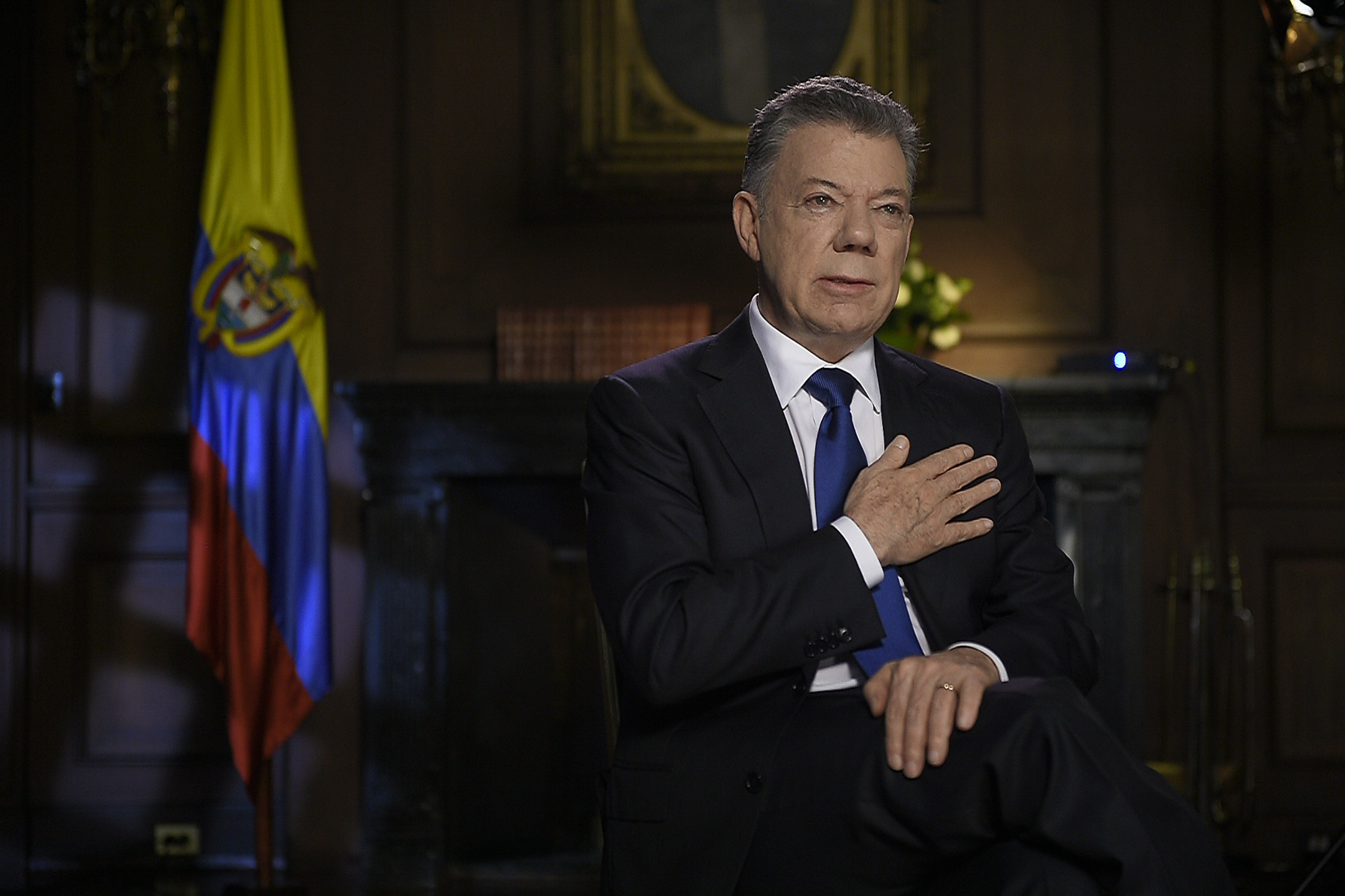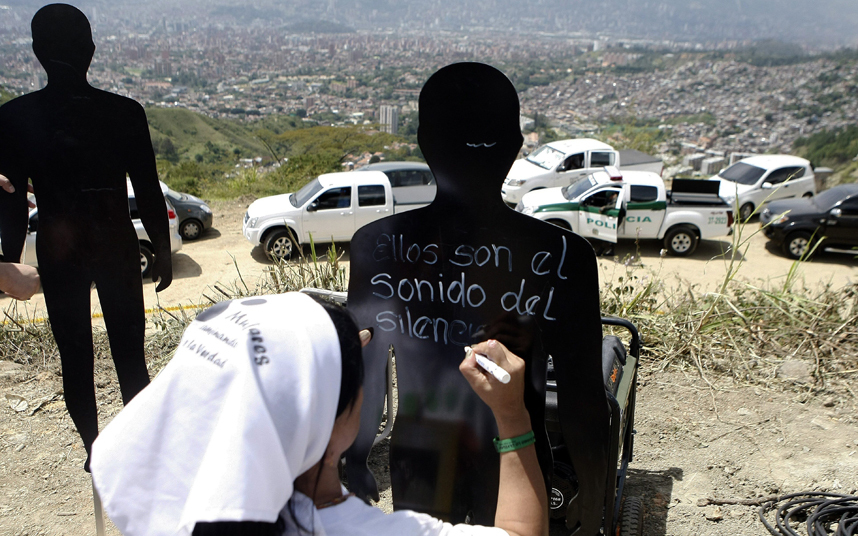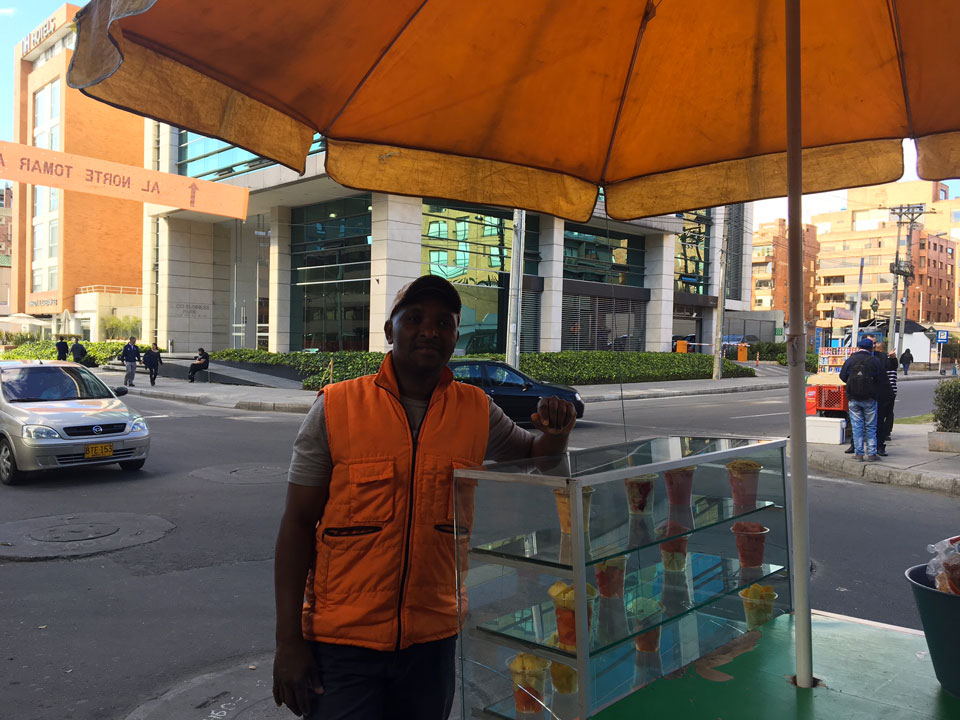Faye Griffiths argues that we have a moral responsibility to pay tax – even in a country with a history of corruption
While I should’ve been tracking down the accountant who did my declaracion de renta last year (his name loosely translates to Dick Lightning in English, so no wonder he’s hard to pin down), or at least going to the bank to get some necessary papers, I was instead reading about new UK Labour party leader Jeremy Corbyn and his economic policy. The guru behind “Corbynomics” is Richard Murphy, an economist who wrote a book called ‘The Joy of Tax’.
Perhaps like most people, whenever the semantics of finance pop up (rates, ratios, capital gains, interest) my brain involuntarily makes a whirring noise. But believe it or not, economics – and even finance – can be fascinating if it is well explained or somehow personally relevant to you.
Murphy, who believes tax can be a tool to create a better society, has four tax maxims: simplicity, truth, equality and peace. Colombia voted in its latest tax reform (reforma tributaria) in late 2012, so to show just how fascinating tax is, we looked at how the reform relates to Murphy’s principles.
Simplicity
For Murphy, simplicity means a system that applies the principle of the law rather than getting bogged down in the letter of the law. It means not getting lost in bureaucracy due to mutual mistrust.
When my husband started insisting in August last year that we went to get my RUT from the DIAN office so I could pay taxes, I assumed there was a misunderstanding. I already pay income tax, don’t I? Surely this is just for self-employed people. You can’t seriously be saying that anyone who earns three million or more a month suddenly has to go to get their RUT then look at the last two numbers of it and then calculate the tax that the government has decided they have to back-pay and then pay it before the date which is dictated by those final numbers of the RUT?
Yes, he was saying that, and he was right. I joined the queues of people giving up hours of their lives at the DIAN to dutifully comply with the law.
At least the rules on who needs to declare income are pretty straightforward. Plus things are easier than last year as the website is up and running, with lots of information available. It is an effortless enough job for an accountant, but I still haven’t been able to do it independently because it’s too intricate and fiddly.
Murphy would have a lot to say about the systems here. While I keep in mind that lack of simplicity is no excuse for shirking the task, the whole thing feels like Brechtian version of the nativity play.
Truth and Equality
Equality: The idea that people on similar levels of income should pay similar taxes, and that people should pay more as they earn more. Murphy also talks about equality of life – that everybody should have the basic means to participate in society.
Truth: The tax system should be democratic and free of corruption, and both leaders and those who staff the system should be trustworthy. He advocates the need for honesty on both sides – from the taxpayer in their declarations of income and assets, and from the government regarding how the system works.
Although the last decade’s boom in oil production has worked wonders for Colombia’s government revenues, for half a century Colombia’s finances have been weighed down by internal conflict – which requires serious public spending.
But not only does war cost money, it also makes it harder to attract investment. This is one reason why Colombia has been lenient, to say the least, with corporation tax. Successive neo-liberal governments have allowed multi-nationals and big business in general to have an easy ride. And the country continues to sign up to free trade agreements, which generally bring with them attractively loose corporate tax policy.
Although some believe the government might increase business taxes in order to increase revenue, my guess is that corporate Colombia will continue to enjoy pretty low tax levels for a while yet.
So how is revenue raised? The unpopular cuatro por mil financial transaction tax (charging four pesos for every thousand) is one way. Only ever intended as a temporary tax some 15 years ago, it is now a standard part of banking here.
Then there’s sales tax, known as VAT. The general rate of 16% is relatively high. Some argue that this is a useful tax on the rich, as they spend the most money on luxury goods. But since VAT isn’t only applied to luxury goods, many economists argue that it actually hits the poorest the hardest, as the rate is not proportional to income.
When considering equality, therefore, remember that the World Bank puts Colombia as one of the top ten most unequal countries in the world. An OECD report this year said that the system “does not promote efficiency and fairness and is very complex.” Calling tax evasion “pervasive”, the report estimates VAT evasion at 2%-4% of GDP and corporate income tax evasion at 2.3% of GDP.
As for truth – well, nobody seems to check that you’ve made the declaración de renta. Even if you do declare, such is the system that any half decent accountant will find a way of allowing you to avoid paying what you ought to.
Even carrying out the process completely honestly you will encounter rules that don’t fit with Murphy’s principles. For example, owning a car, having a mortgage and having to pay for education are all deductibles – as is having dependants. In other words, the greater your spending power, the more you can deduct. This is quite the opposite of a progressive taxation regime.
The question of fairness therefore falls into two areas: what is it fair to deduct from someone’s payment, and what is fair about demanding that people pay more tax?
Some of the most harmonious countries in the world – most famously those in Scandinavia – have high taxes and high public spending. Latin America boasts neither. Even Hugo Chávez in Venezuela only put the highest income tax band at 34%. Compare that to the 45% that France whacks onto its top earners!
Some argue that in Colombia, poor public services suggest you don’t get much bang for your buck by paying taxes. The problem here is that if people use this as a justification for not declaring – or not doing so honestly – it only exacerbates the problem. Sure, we don’t get enough back, or we would like to have more say over how funds are used, but refusing to pay taxes because public spending is inadequate will not improve the situation.
It is hard to calculate just how public spending benefits us individually. But Murphy believes that it is a privilege to be well paid and thus able to pay to maintain a fairer society – which ultimately benefits everyone. I don’t think many people innately love the idea of paying for others. Who likes buying a round when you’re drinking lager and someone else wants a malt whiskey? And a taxation system isn’t a beer kitty anyway. You don’t get direct returns for your investment. The point is to get your returns by having a state that functions smoothly.
Ultimately, tax reform is small-fry when you consider how much tax is still being evaded. Especially since the government has not gone after big businesses or clamped down on corporate tax loopholes. But maybe the latest reform is a way of softening the path towards a fairer taxation society? It’d be impossible for any government to just double the amount of income tax that people have to pay as the repercussions would be too violent. I think that by introducing a voluntary declaration system first, the idea of paying more income tax might become more palatable – even if it seems to still favour hegemonic, neo-liberal aspirations.
Peace
Murphy sees tax as a mechanism to reconcile society’s conflicting goals, and so underpin a peaceful society. He also talks about peace in the context of what he sees as an ‘economic war’ waged by tax havens.
For Colombia, peace has much more immediate connotations. Put simply, there has never been a more hopeful time to start paying your taxes. If post-conflict Colombia is going to function, it will need a lot of money.
Of course, a lot of that money will still be used for things that aren’t so deserving in the name of peace, but that’s the price you pay. There’s also the old left-wing adage of peace not being the absence of conflict, but the presence of social justice. So if doing that onerous form-filling means contributing to the construction of a state with better healthcare, the SENA being kept public, water for kids in La Guajira, landmine-clearance, social housing for the displaced, social integration programmes for ex-combatants, social security for old people, then surely chipping in a bit towards that is more satisfying than smugly dodging or outsmarting the system?
Where do foreigners stand in all of this?
We’re included! Actually in some ways we’re given a harder time than some Colombians because we’re supposed to declare any capital we have in other countries so that the Colombian government can tax that too.
I can well understand why people leaving or planning to leave the country this year wouldn’t bother to declare now. But if you’re on a longer stretch in Colombia, what excuse do you really have for not paying your dues? Not only are you a part of this society, but the day might come when we might not be received so favourably, and our experience as foreigners may be more on par with Polish people in Britain.
I don’t think we’ll get to the point of having to defend or justify our place in society here, but if we do it’d be very good to be able to say with a clear conscience that we’ve contributed, and done so at a time when it was perhaps most important.
After all, who wouldn’t want to say they’ve done that?
By Faye Griffiths
The Opinion section is a space for your views and opinions. We’ve featured articles on all aspects of life in Colombia – from the free trade agreement to bull fighting.Whether you agree or disagree with anything we’ve written, we’d love to hear your thoughts – leave a comment below, tweet us at @bogotapost, post on our Facebook page /BogotaPost or email us at [email protected].The articles in ‘Opinion’ are commentary, not news reporting. The views expressed in this section are those of the author and do not necessarily reflect those of The Bogota Post or its publishers. The publishers take no responsibility for the accuracy of any information published in this section. |






